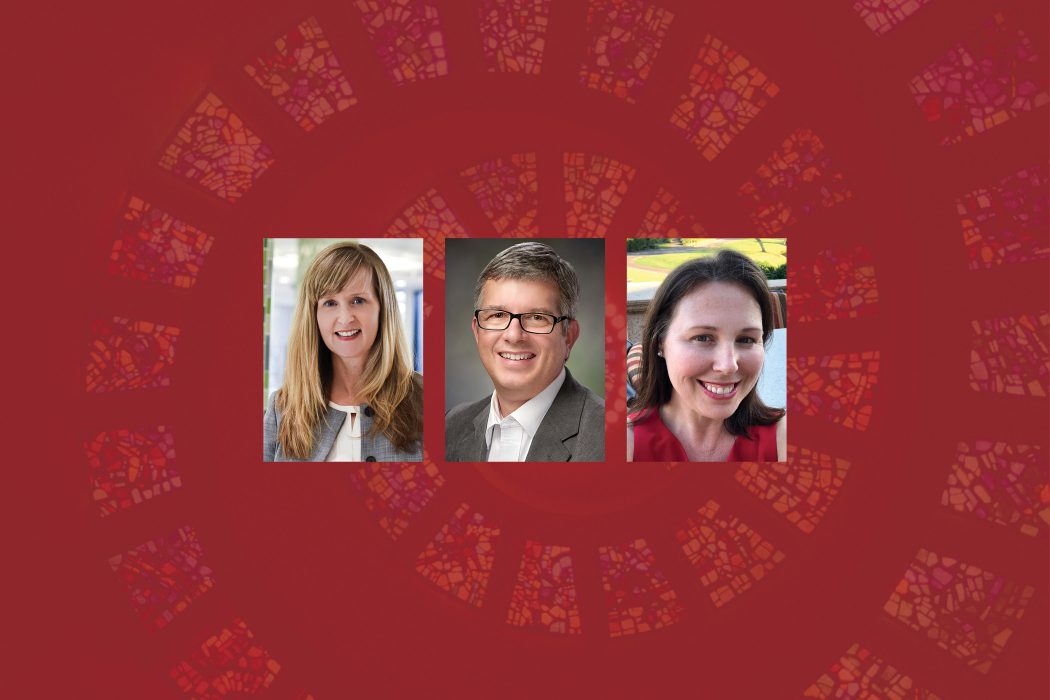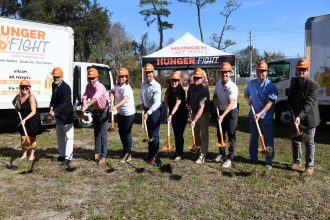Three nonprofit leaders who have dealt with pandemic change offer advice on surviving and thriving during a crisis
When COVID-19 hit, nonprofit organizations scrambled to redesign the ways in which they work. According to the Center for Effective Philanthropy, 88% of nonprofits surveyed had to alter their program offerings in 2020. In another survey conducted by Charity Navigator in partnership with Reuters News, over 50% of responders reported an increased demand for their services. In most cases, available resources decreased. Some agencies shuttered. Others persevered.
For many of these groups, the emergency sparked innovations that will lead to lasting changes that improve and extend the reach of vital services. As nonprofit leaders who have dealt with pandemic change, Eileen Briggs of Sulzbacher, David Clark of DESC, and Kristi Taylor of Hart Felt offer advice on surviving and thriving during a crisis.
Return to Your Mission
For over 25 years, Sulzbacher has been responding to the needs of the community, helping people recover from homelessness and build productive and healthy lives. During the COVID-19 crisis, there were times when things were extremely stressful for the organization, and they had staff and clients contract the virus. “As a leader for a nonprofit, when times are tough, I always try and go back to the mission. Why are we here? What is our goal?” said Eileen Briggs, Chief Development Officer, offering sage advice for persevering through crisis.
Those at Sulzbacher have always envisioned a city without homelessness and believe it is a goal they can achieve. So, Briggs and her team focused on that simple mission—to end homelessness—and took steps toward that future. As an emergency services provider, Sulzbacher remained open throughout the crisis, continuing to help people who need it most.
During the pandemic, “Like all of us, nonprofits had to respond and continue to help those in need, while at the same time figuring out a completely new roadmap,” Briggs said. This included COVID-19 testing and vaccinating, safety procedures that didn’t exist before, placing people in emergency housing, offering counseling and medical services, and helping their own staff navigate this
new normal.
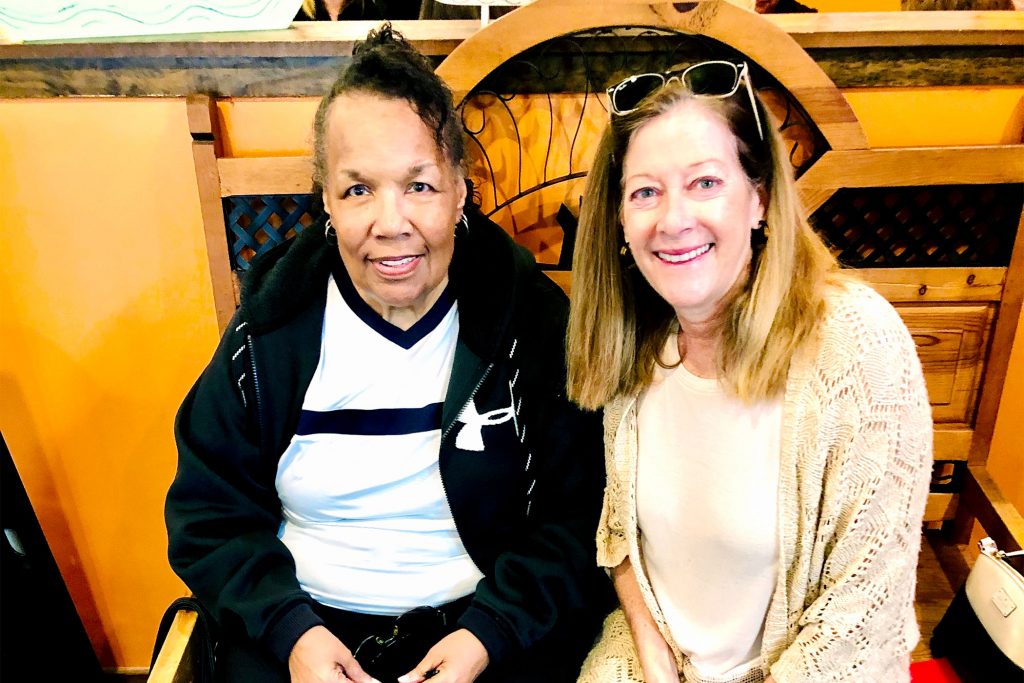
As the primary healthcare provider for over 7,000 patients, Sulzbacher jumped into action. They brought more comprehensive healthcare to the streets by utilizing its HealthMobile program to bring “Health and Hope on Wheels” to the community. HealthMobile is a new program funded by the City of Jacksonville to provide mobile medical services with a waiting room and two fully equipped, private exam rooms in which to provide dignified care. The mobile bus removes the barrier of transportation, delivering medical services and case management to the downtown core. This is an expansion of the Urban Rest Stop at Sulzbacher’s Downtown Campus, a place for people experiencing homelessness to receive vital services during the day, including help with job and housing placement.
Sulzbacher opened another new program during the crisis, the Mental Health Offender Program (MHOP). This, in partnership with the Jacksonville Sheriff’s Office, is to identify repeat misdemeanor offenders who have serious mental health problems and divert them from the jail and into housing with the right supportive services. Briggs reported that the MHOP reduced the number of arrests by over 80% in its first year. It’s been another step taken in the direction of Sulzbacher’s mission to help people build productive lives.
Focus on Your Clients
Like Briggs, David Clark advises, “Never lose sight of the mission. Let it guide you.” Clark is Executive Director of the Downtown Ecumenical Services Council (DESC), whose mission is to meet the needs of people who are in emergency situations or experiencing poverty. So, as the organization faced the COVID-19 crisis, it made sure to look for solutions that would support their mission, which is client-focused.
“Whatever the crisis is, try to predict the impact it will have on your clients,” said Clark. Once it’s anticipated, plans can be made to reduce the impact the crisis will have on clients as well as on staff, volunteers, and donors. Almost all DESC’s volunteers are in a high-risk category based on age. So, it wasn’t only the clients having risk factors, it was also the volunteer staff to be concerned about.
DESC’s services have been site-based since the beginning, 1981. They offer a food pantry and a clothing center, both of which require physical presence; so, both had to close down, initially, until a new plan for safety was developed. It took nearly two months to put policies in place that would create a safe environment that would discourage the spread of the virus.
DESC is located in the downtown area with access to Ocean Street. They created lines along the sidewalk for people to wait in while one-at-a-time they could be checked in as a way to gather food in from donors and distribute it back out to clients. “It was a process that helped get people what they needed quickly,” Clark said. As time went on, they fine-tuned the process to make it even better, but “the key was opening the doors again. We had people coming to us who were losing jobs and facing eviction as a consequence of the pandemic, so our demand for services was increasing,” he said.
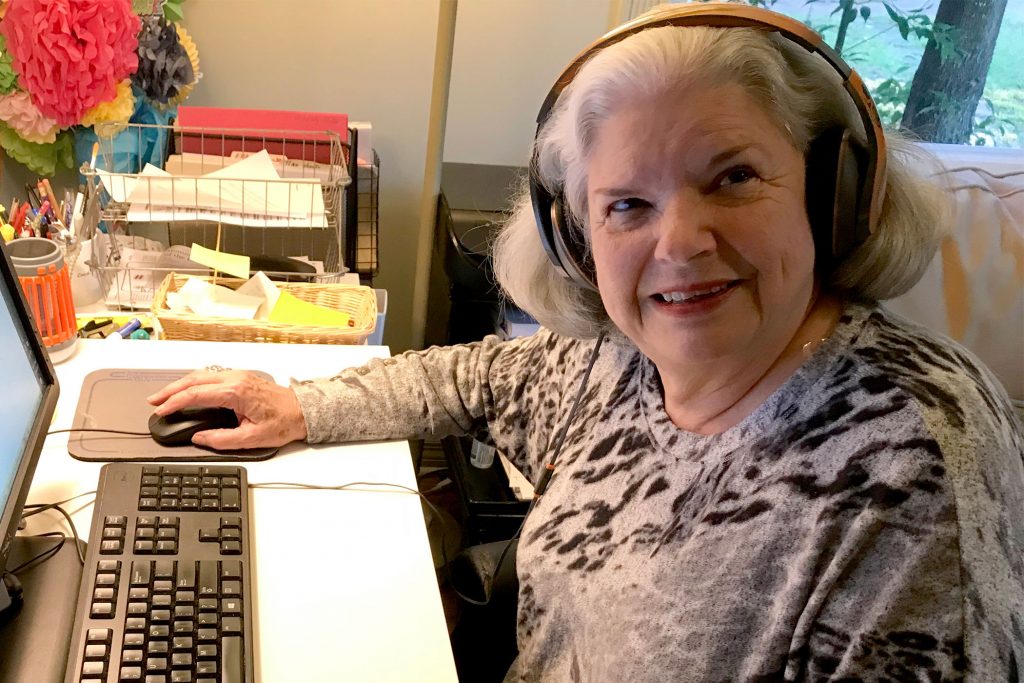
In addition to their two onsite services, DESC also a has an emergency financial assistance program that provides relief for rent and overdue utilities. It took the agency only a week or two to put the technology in place for paid staff to work from home, though the requirements were extensive. For example, they had to create financial services application forms that could be completed online and a privacy-secured access point for clients to send the forms back to the organization. Official electronic signatures were necessary for documents. It was a big change for them. But Clark advises that, during a crisis, “Ensure ongoing access to services.” And that’s what DESC has done. They don’t have to operate their financial assistance program remotely anymore, but there’s an advantage to it for certain clients; so, DESC will maintain a hybrid method moving forward.
“The switchboard was very critical during the pandemic, and it remains so,” Clark said. DESC was able to re-route incoming phone calls almost immediately. Their remote switchboard has turned out to be a benefit because they’ve been able to increase the hours of availability. “People who call in to us are often calling because they are in crisis themselves,” Clark pointed out. It’s re-assuring to clients to have a real live talking person outside of standard office hours. Before, DESC relied on automated voicemail for the switchboard. Now, they can help talk clients through the crisis, make referrals for resources, or even pray with them. “It’s quite an improvement in my mind,” said Clark. It’s a change that the organization plans to keep in place.
Clark also stressed the importance of the office culture. It must be one that is open and ready to experience quick and numerous changes as a crisis progresses, which is not always easy. It’s imperative that everyone feels comfortable with and has confidence in the organization’s leadership so that, as change comes, the group is ready to embrace and handle those changes.
Creating an adaptable office culture has to be built on trust, and that can take a long time. It’s not something that can suddenly be created. Clark suggests having the right staff. And, he said, “Have an excellent working relationship with your board of directors. To create and maintain that goes back to trust. Hopefully, all executive directors have been working on that trust from the beginning, which comes from a genuine relationship built around a common passion.” That passion points back to the mission that focuses on the client.
Be Flexible with Your Plans
A third nonprofit leader with advice to share on dealing with crisis is Kristi Taylor, Volunteer Manager at Hart Felt Ministries on Bentley Road. The organization serves a vulnerable Jacksonville population, the aged, particularly those with limited resources and without nearby family to assist with everyday tasks.
Hart Felt’s mission is to enrich the lives of frail seniors by enabling them to age in place with dignity and grace. They do this by providing in-home services, including minor repairs, meal preparation, and light housekeeping. Errands, transportation, and companionship are popular requests from seniors as well. Hart Felt is able to do all of this for clients at no cost with a network of 200 volunteers and a coalition of individuals, churches, organizations, and companies who donate their time, talent, and money to the cause.
But on March 16, 2020, serving seniors in their homes came to a halt. Hart Felt was forced to find new ways of responding to the needs of their already socially isolated and now physically high-risk clientele. “The biggest challenge for us was reconciling keeping our clients physically safe while meeting their needs. Loneliness was already a pandemic in the elderly population, and COVID certainly magnified isolation,” said Taylor.
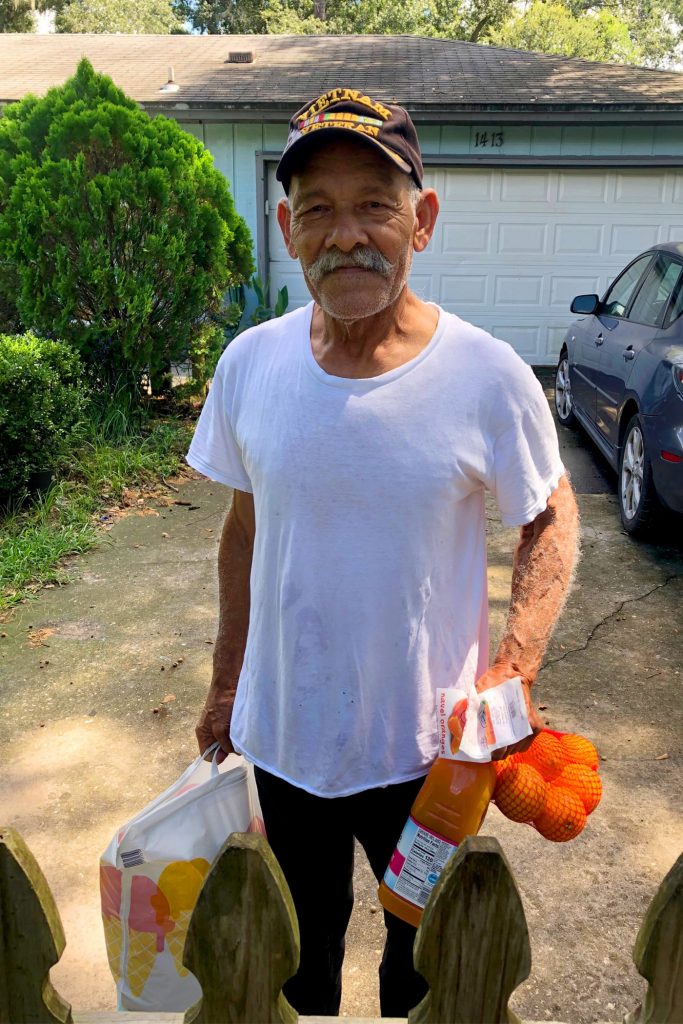
At the start of the crisis, their team began offering telephone support to the 270 of 454 active clients who lived alone. The volunteer callers would inform appropriate staff members of clients’ needs, and food was a prevalent request. “Since we weren’t taking clients to doctors’ appointments, we started using the Hart Felt van to deliver groceries. We also relied on our volunteers, church groups, and staff to make sure clients did not go without critical household items like toilet paper,” Taylor said.
Though telephone outreach had been a part of Hart Felt’s program for many years, it became the primary way to offer much-needed companionship during the early stages of the pandemic. They already had a model in place and were able to quickly mobilize a team to expand that outreach service to include connections through the mail as well, sending greeting cards to lonely seniors who hadn’t already been matched to a specific volunteer, letting them know that they were not forgotten. New relationships blossomed to help mitigate the trickle-down impact of loneliness.
Hart Felt has tallied their COVID-19 outcomes for 2020. They had spent 1,410 hours on the telephone, sent 875 greeting cards, and made 86 grocery deliveries. They served more clients in 2020 than in any other year since they established their ministry in 2003, despite having to suspend home visits for nearly six months.
One of Hart Felt’s volunteers, Paige Yauger, missed so much seeing her friend, Ms. Annette, that she crafted a plan to see her while at the same time adhering to the company’s policy of refraining from in-home visits and to CDC guidelines of social distancing. Yauger set up her beach chair in the parking lot of Ms. Annette’s apartment community while Ms. Annette sat at her front door on the seat of her walker, maintaining their relationship that was critical to the senior’s wellbeing while keeping safety protocols in place.
In lieu of in-person visits, their original model, Hart Felt launched an extensive telephone companionship program, which incorporated greeting card mailings, in addition to a grocery delivery program. Both now complement the agency’s in-person care that has since resumed, with proper precautions. Taylor’s advice during a crisis is this: “Be flexible. Be willing to make amendments to your plans. Don’t be afraid to turn and go in another direction,” she said.
You Will Get Through It
There is hope for being able to wade through the waters of change, as demonstrated by these three local nonprofits. Their leaders advise adhering to the organization’s mission, as they have. All three make their priority their clientele, who are some of the most vulnerable in Jacksonville’s community—Sulzbacher on those experiencing homelessness, DESC on those in emergency situations, and Hart Felt on those aging and frail. And all three have leaned toward those clients’ needs with innovations in programs and procedures.
Mission, focus, and flexibility: this apt advice for persevering through crisis seems appropriate not only for resilient organizations but also for courageous individuals. As stated by Taylor, “Always remember that brighter days are ahead, and you will get through it.”

